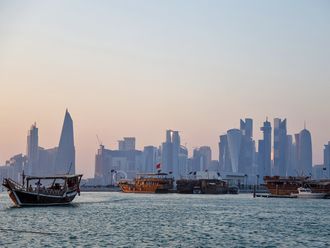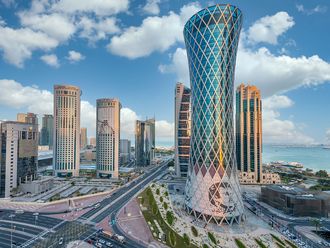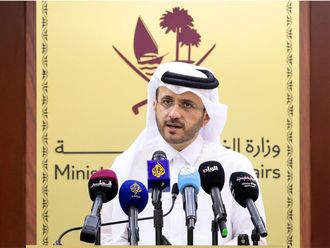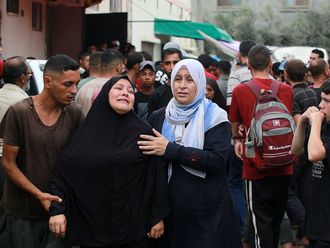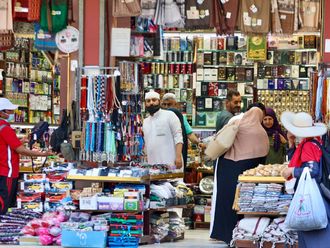Dubai: Qatar is preparing contingencies to ward off economic pressure threatened by its Gulf neighbours amid a continued diplomatic stand-off over the role of political Islam in the region.
Executives in Doha say official planning is under way to deal with any potential sanctions, despite officials’ belief that Saudi Arabia, the UAE and Bahrain will refrain from raising tensions further after last week’s withdrawal of ambassadors.
The dispute erupted at a stormy meeting of the Gulf Cooperation Council this month as Saudi officials threatened to close air space or its land border to Qatar unless Doha reins in support for the pan-Arab Islamist Muslim Brotherhood.
Riyadh and Abu Dhabi are concerned that Doha’s close relations with the Brotherhood — banned in Egypt, Saudi Arabia and the UAE — is dividing the six members of the GCC.
Saudi Arabia and the UAE are leading backers of Egypt’s interim military-led regime under Abdul Fattah Al Sissi, which last year ousted Mohammad Mursi, the elected Islamist president and one of the Muslim Brotherhood’s leading figures.
UAE and Saudi leaders met Field Marshal Al Sissi last week after Egyptian troops arrived in the UAE for military exercises.
Doha — home to prominent members of the Muslim Brotherhood, including cleric Yousuf Al Qaradawi, who is regarded by many as a spiritual guide of the Islamist group — has in turn criticised the Egyptian regime for killing its own people.
Of the other GCC members, Kuwait is acting as mediator while Oman usually avoids involvement in intra-Arab disputes, although observers says Muscat is concerned at the aggressive measures being taken against Qatar.
The widening gap between Doha and Riyadh has raised the prospect of Saudi Arabia carrying out its threats.
“There have been no physical disruptions yet but the diplomatic dispute certainly increases the risk,” said Richard Phelps, a Dubai-based analyst with Kroll, a consultancy.
Previous bilateral disputes between Saudi Arabia and the UAE have led to limited disruption at border crossings.
The Qatar stock market has suffered jitters since the ambassadors’ withdrawal as investors fretted about Doha’s regional isolation. The fear is that if the situation escalates it could affect Qatar’s plans to spend billions of dollars on infrastructure in preparation for hosting the 2022 football World Cup.
“The land border puts Saudi Arabia in a position of strength as its closure could disrupt Qatari imports,” Phelps added. “A border closure would be a serious problem as Qatar would have to rely on seaborne supplies.”
Qatari officials have discussed the potential impact of Dubai’s tran-shipment hub, the largest in the region, being closed to its shipping. Another Doha government department has asked suppliers if they would be able to continue their services in the event of a “crisis”.
Doha residents are also concerned that the closure of the Saudi land border would increase the cost of basic foodstuffs, much of which is sourced from the kingdom’s agricultural sector. The threat to close Saudi air space would be a huge blow to Qatar Airways, the ambitious and fast-growing airline.
However, Qatari officials are banking on the negative repercussions of sanctions undermining the desire of Saudi Arabia to raise the ante.
“Saudi Arabia does not want to push the GCC towards disintegration. Closing borders is a bad sign for them as much as us” one said.
The UAE would also be wary of escalating matters, given its dependence on natural gas imported from Qatar for its power generation.
Any potential disruption comes at a sensitive time in Qatar, where last year’s transition to the 33-year-old Emir, Shaikh Tamim Bin Hamad Al Thani, has already had an impact on the domestic business scene.
Executives are complaining about swingeing budget cuts across government departments and slow payments to contractors as new officials make their mark.
“Infrastructure projects have already faced delays due to political reshuffling, so this would add a further layer of exposure,” Phelps said.
— Financial Times


